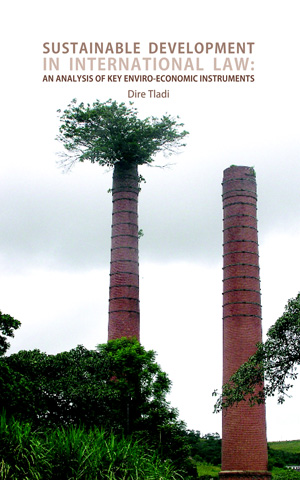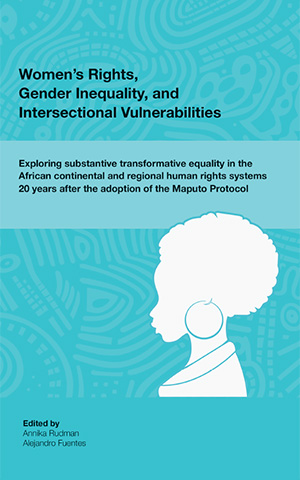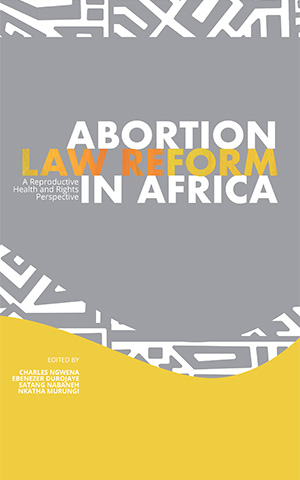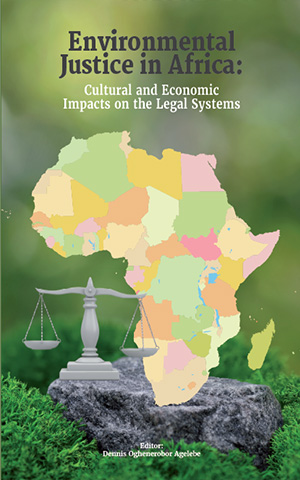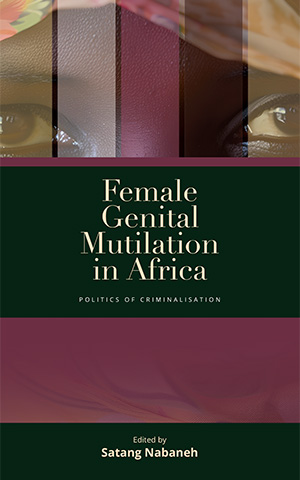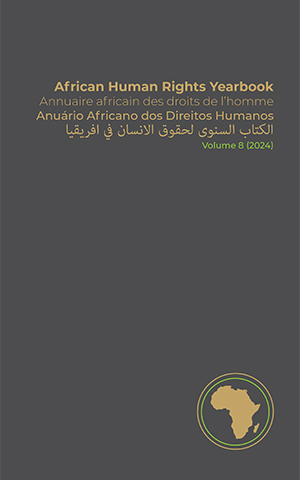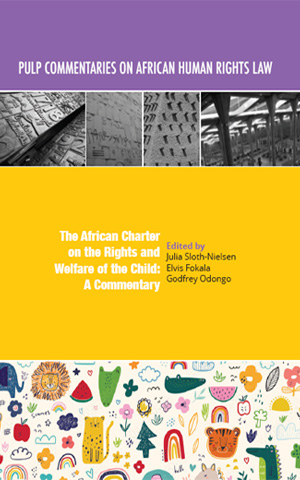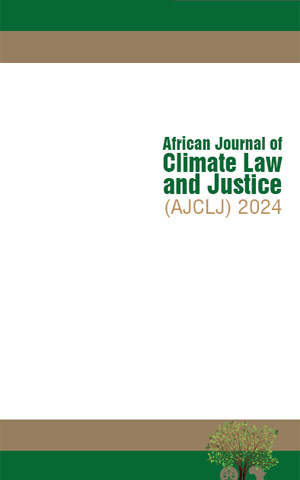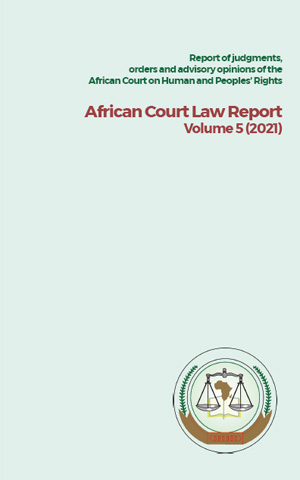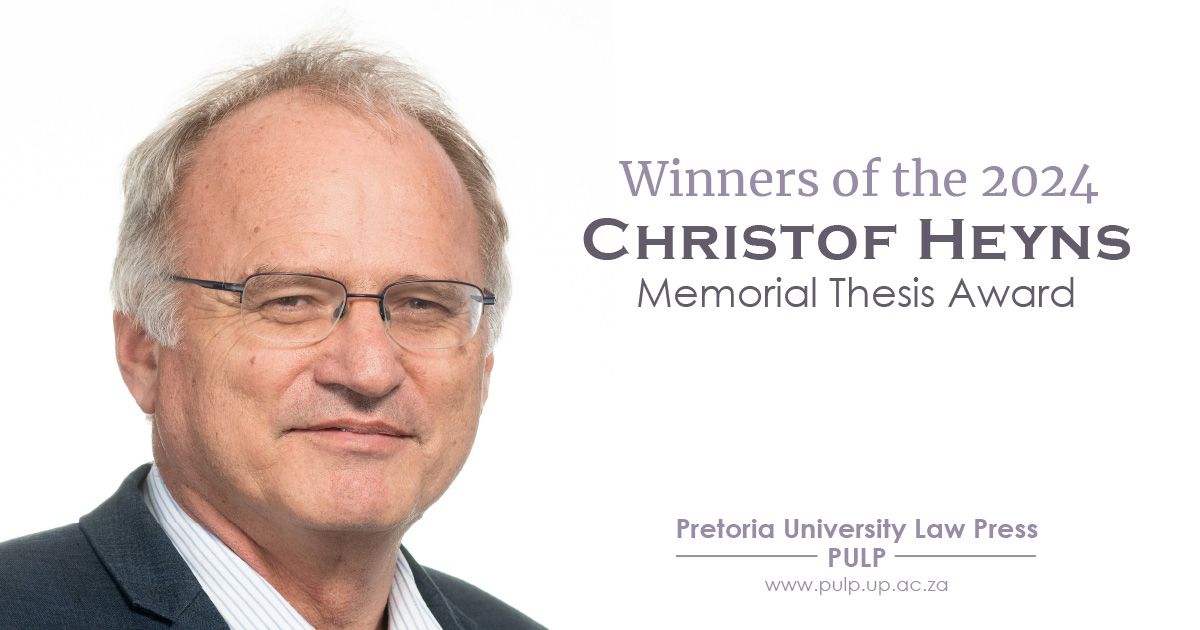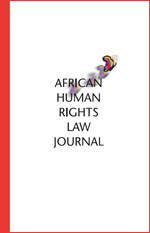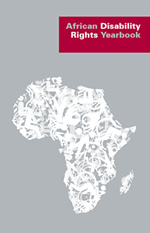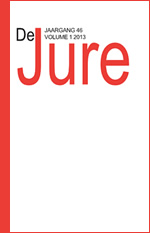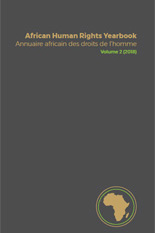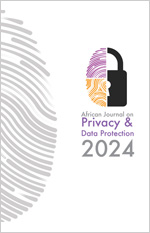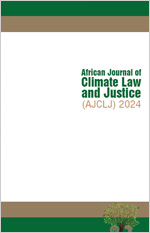Sustainable Development in International Law: An analysis of key enviro-economic instruments
by Dire Tladi
2007
ISBN: 978-0-9585097-9-4
Pages: 274
Print version: Available
Electronic version: Free PDF available
About the publication
The concept of sustainable development has grown in importance in the last two decades. Its significance is reflected in the number of major international conferences on sustainable development such as the Johannesburg World Summit on Sustainable Development and the Rio Conference on Environment and Development that have taken place in this time; the many international environmental agreements purporting to give effect to sustainable development and soft law instruments endorsing the concept enacted over this period; and the large body of literature relating to sustainable development that has emerged.
Despite this currency sustainable sustainable development as a legal concept is open to critique on the basis of its indeterminacy. This book attempts to address this indeterminacy: It offers a conceptualisation of sustainable development that, taking into account the intricacies and nuances of current sustainable development discourse, contributes towards making sustainable development a more useful legal tool. The model of sustainable development thus developed is then applied to several key environmental regimes – climate change, biodiversity and the Global Environment Facility – to illustrate its usefulness.
Anyone working in the areas of international environmental law, international development law or general international law – whether as practitioners or academics – will benefit from this book.
About the editor:
Dire Tladi is Professor of international law at the Department of Public Law and the Institute for International and Comparative Law in Africa at the University of Pretoria. He is also Extraordinary Professor at the Public Law Department of the University of Stellenbosch.
Table of Contents
PREFACE AND ACKNOWLEDGMENTS
LIST OF ABBREVIATIONS
TABLE OF CASES
TABLE OF INTERNATIONAL INSTRUMENTS
- One / Introduction
1. Background
2. Study objectives and methodology
3. Parameters
4. Synopsis
PART A: FRAMEWORK
Introductory remarks to Part A
- Two / Sustainable Development: History and Purpose
1. Introduction
2. Sustainable Development: A Historical Sketch
2.1 General
2.2 Towards Stockholm
2.3 The Stockholm Conference
2.4 The Road to Rio
2.5 UNCED
2.6 WSSD
3. Purpose of Sustainable Development: Paradigm Shift
4. Conclusion - Three / Conceptualising Sustainable Development
1. Introduction
2. Early Conceptualisation
2.1 Intergenerational Equity
2.2 Intragenerational Equity
2.3 Integration
2.4 Human Rights and Sustainable Development
3. A More Nuanced Conceptualisation
3.1 Unlocking Sustainable Development: Integration is the Key
3.2 Three Variations of Sustainable Development
3.3 Identifying the Variations of Sustainable Development in Specific Instruments
4. Conclusion - Four / Sustainable Development in the Context of International Law
1. Introduction
2. The Status of Sustainable Development under International Law
3. Sustainable Development in International Law
3.1 The Place of Sustainable Development in International Law
3.2 The Role of Sustainable Development in International Law
3.3 Variations of Sustainable Development, International Law and the Paradigm Shift
4. Conclusion
PART B: ANALYSIS
Introductory remarks to Part B
- Five / Sustainable Development and the Climate Change Regime
1. Introduction
2. The Climate Change Problem
2.1 Background to Climate Change and the Development of the Regime
2.2 Interests and Countervailing Interests: A Note on Negotiating Hurdles in Climate Change Regime-Building
3. Climate Change Regime: An Analysis of Kyoto 126
3.1 Principles in the UNFCCC: Paving the Way for Kyoto
3.2 Key Provisions of the Kyoto Protocol
3.3 Bonn and Marrakech Agreements
4. Analysis – Determining the Kyoto Protocol Variation of Sustainable Development
4.1 General
4.2 Kyoto’s Emissions Reduction Targets
4.3 Flexible Mechanisms under the Kyoto Protocol
4.4 Intragenerational Equity
4.5 The Precautionary Principle
4.6 The Malignancy of the Climate Change Problem as a Factor
5. Concluding Remarks - Six / Sustainable Development and the Biosafety Regime
1. Introduction
2. Background: Science and Dilemmas
3. Biosafety Under the Biodiversity Regime
3.1 The Biodiversity Convention
3.2 Key Provisions of the Protocol
3.2.1 The Scope of the Agreement and AIA Procedure
3.2.2 Decision-Making: Precaution and Socio-Economic Factors
3.2.3 Relationship of Protocol to WTO Agreements
3.2.4 Provisions Giving Effect to Intragenerational Equity
4. Analysis – Establishing the Central Value in the Protocol
4.1 General
4.2 Scope of the Protocol
4.3 Decision-Making: Precaution and Socio-Economic Factors
4.4 Relationship of the Protocol to WTO Agreements
4.5 Intragenerational Equity
5. Concluding Remarks - Seven / The Global Environment Facility
1. Introduction
2. Background to the GEF: Creation and Institutional Make-Up
2.1 Background: Establishing the Pilot Phase
2.2 Towards Restructured GEF
2.3 Restructured GEF: Institutional Structure
2.4 Restructured GEF: Institution Sui Generis
3. The GEF Operations and Policies
3.1 Policies and Objectives in the GEF Instrument
3.2 Eligibility Criteria for GEF Funding: ‘Incremental Costs’ and ‘Global Environmental Benefit’
3.2.1 COP and GEF Approach to Incremental Costs
3.2.2 COP and GEF Approach to Global Environmental Benefits
3.2.3 Interplay Between National Priorities and Global Environmental Benefits
4. GEF Variation of Sustainable Development
5. Conclusion
FINAL OBSERVATIONS: SUSTAINABLE DEVELOPMENT: NEW LANGUAGE SAME PARADIGM?
1. Sustainable Development: Implications for International Law
1.1 Three Variations of Sustainable Development
1.2 The Operation of Sustainable Development in International Law
2. Sustainable Development: The Continued Dominance Economic Concerns
2.1 Patterns of Trumping
2.2 Methods of Trumping
3. Is there any Cause for Hope?
4. Conclusion
BIBLIOGRAPHY
INDEX
